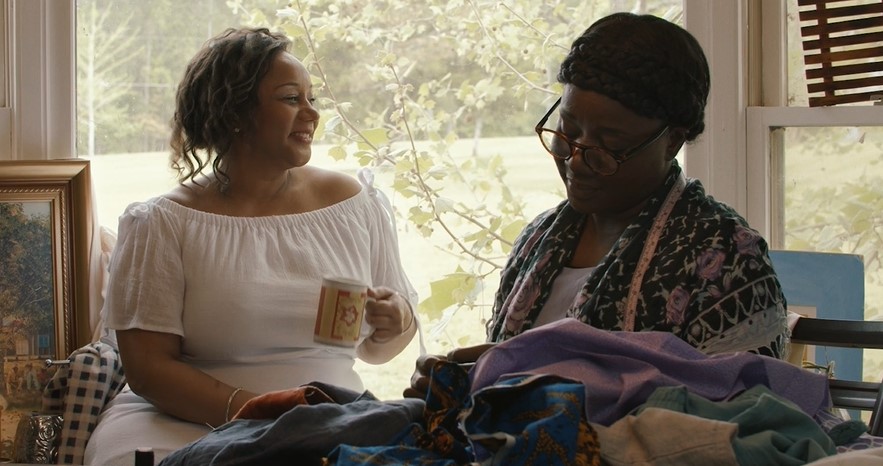‘Purple’ by Summer J. Robinson reimagines ‘The Color Purple’ with a uniquely fresh and profoundly womanist perspective, diving into the transformation of its central character, Celie. Set initially in 1907, we witness the devastating moment when Celie, still a young woman, is handed off by her father to another man – a gut-wrenching scene that portrays her lack of choice. With sharp visual storytelling, ‘Purple’ conveys the weighted silence of Celie’s life, capturing her as both a symbol and an individual yearning for freedom.
The film skips to 1940, revealing Celie as an independent woman who has survived and reclaimed her sense of self. This portrayal is supported by Robinson’s thoughtful direction and Tery Wilson’s remarkable cinematography, which envelops the scenes in a quiet dignity, reflecting both the era and Celie’s internal transformation.
While ‘Purple’ carries a religious undertone, its real power lies in exploring themes of sexuality, independence, and identity. This isn’t a straightforward narrative; instead, Robinson offers a study – a fragmentary imagining of what Celie’s journey could mean to Black women and womanist ideals today. In some lighter moments, the film hints at a gentle humor, a nod to Celie’s resilient spirit despite hardship.
The film’s production quality shines, with refined acting and attentive details that lift the reimagining beyond homage. However, for viewers unfamiliar with ‘The Color Purple’, some aspects might be opaque, as ‘Purple’ resonates most with those attuned to the novel’s complexities. It’s an artistic tribute to Celie’s journey – both timeless and intimate – told from a place of profound respect.


